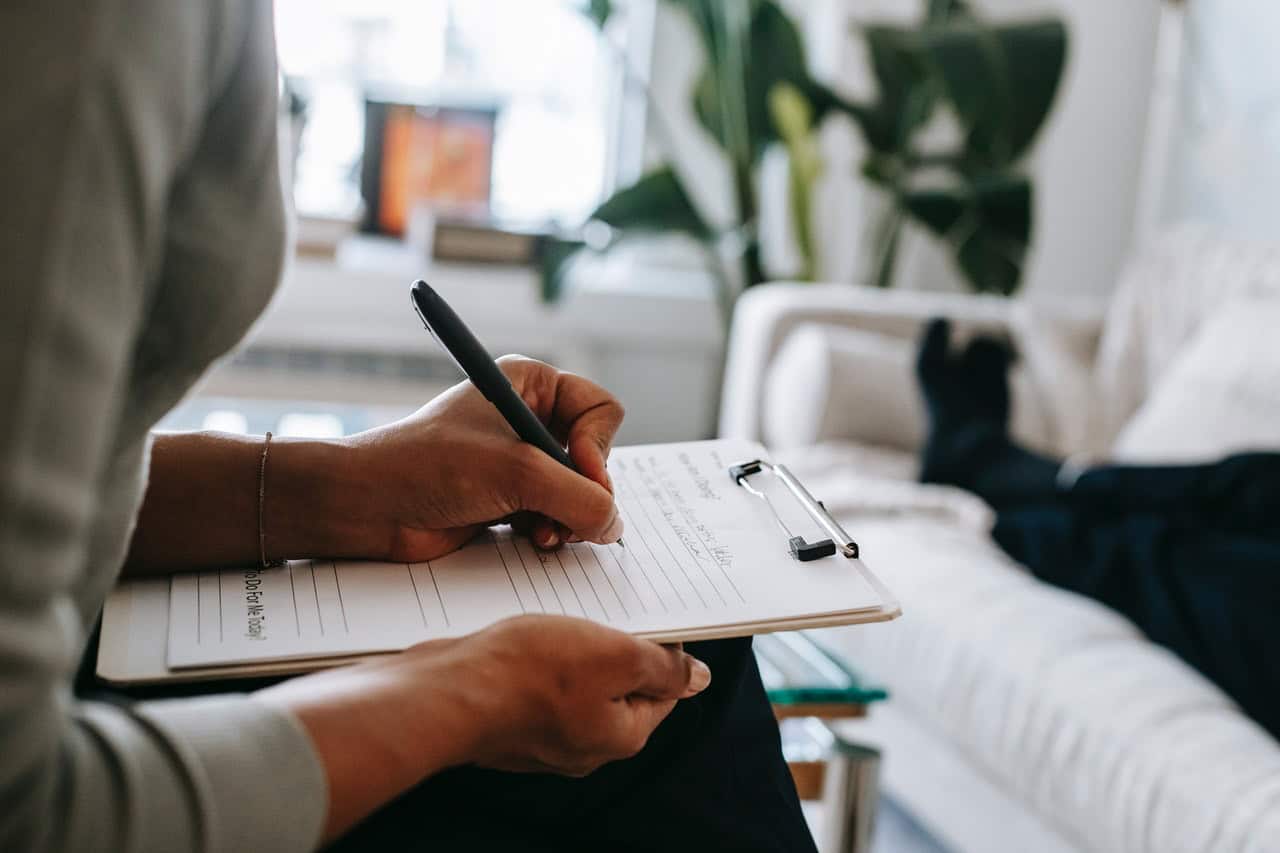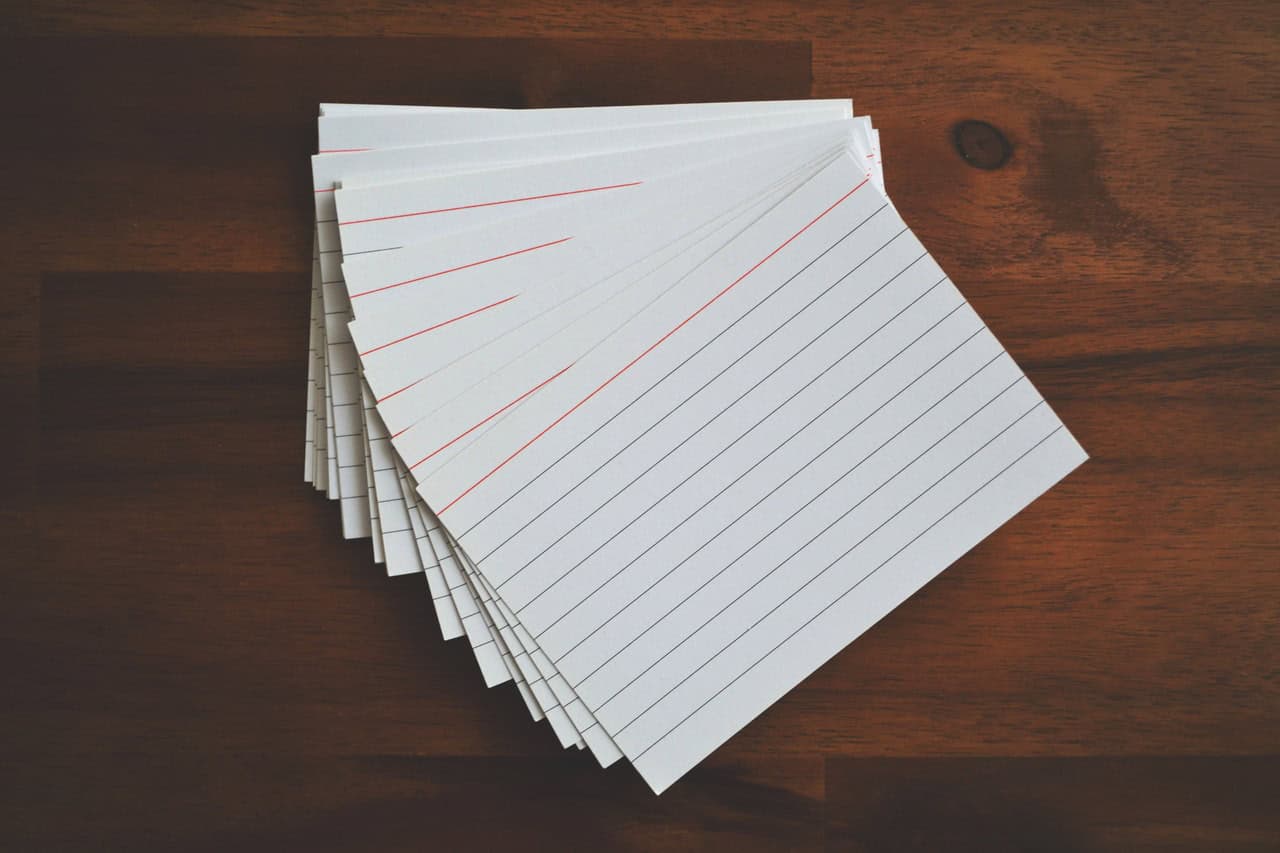Resourcing practice exams to ensure you’re prepared for the VCE Psychology Exam is tiresome!
Therefore, whether you’re looking to catch a glimpse of what the exam entails or are right in the thick of preparing for the examination, we’ve got you covered with a fruitful assortment of past VCE Psychology papers.
How to do well in the VCE Psychology Exam?
How Long is the VCE Psychology Exam?
VCE Psychology Past Exams
How to do well in the VCE Psychology Exam?
If you’re at the beginning of the Year 12 VCE Psychology Study Design
Study Tip #1: Print out the study design
Visualising the year to come is vital in staying on top of your studies. By printing out your study design, you can begin to establish a clear foundation of both units. Resultantly, you will also be able to plan for SACs!
Check out the study design!
The study design is easily accessible through VCAA. It will help you to identify all of the key knowledge you need to learn. Generally providing a good foundation for your notes.
Anticipate every key point of the VCE Psychology Study Design well in advance by reading our full breakdown!
Study Tip #2: Write notes as you progress through each unit
Altogether, now that you are familiar with the study design, you can utilise the key concepts and terms to form your own notes.
By starting this in accordance with the weekly content and upcoming SACs, preparation for the final exam will be much more effective. Both in terms of your time management and understanding of the content.
Even a rough outline of your notes will allow you to condense the content when the time comes.
Study Tip #3: Create cue cards
When aiming to break content down into a digestible form, cue cards are an incredible resource.
The cards can be an interactive or solo method of study. They can be catered to your individual learning style, for example if you’re a visual learner the use of colour in separating topics can further integrate knowledge.
Moreover, cue cards are small and can be useful in circumstances where it may be inconvenient to access your notes.’
Not sure how to prepare for the Psychology exam over the holidays? Here is a complete guide to balancing rest and VCE study over the break!
If you’re close to sitting the exam…
Study Tip #1: Complete practice exams within a variation of conditions
There are incredible benefits to embarking upon a practice exam under exam conditions. It will help you feel less anxiety on the day, as the skills of time management will help you work under better under pressure.
However, we encourage taking the opportunity to sit with a practice exam, both open and closed book and complete each question at your own pace. Perhaps writing in a blue pen when answering closed book and switching to a red pen when open book is required.
This way, as you go through and correct each section, you can take note of areas in which potentially need more assistance.
Study Tip #2: Spend time with the corrections and feedback
Furthermore, the next step is properly digesting the corrections of each practice exam. Without taking on feedback and corrections, the value of practice exams greatly diminish.
Generally, feedback can identify holes in your knowledge and skills. Providing guidance for your future study sessions.
Remember: there is no point doing more practice exams if you are repeating the same mistakes!
Additionally, we encourage creating a chart, for example, in order to highlight what areas you need to work on.
Check out why you should be putting in the effort with your past papers!
How long is the VCE Psychology Exam?
It is important to familiarise yourself with the exam structure in order to excel on the day! Looking over what the exam entails is vital in the time management of your study and approach to the real examination.
Section A: Multiple Choice Questions
The first section of your exam consists of 40 multiple choice questions. Each question will be worth 1 mark and in total will make up 40 out of 120 marks of the exam.
As you go through each practice exam it can be helpful to identify which topic each multiple choice question belongs to. Keep in mind that some questions will be more time consuming than others!
Section B: Short Answer and Extended Response Questions
The second section of your exam will be comprised of both short answer and extended response questions, including a 10-mark extended response.
Overall, section B enables you to apply your knowledge to specific questions and incorporate your key science skills.
A true understanding of the content will shine through in your ability to draw conclusions and integrate your knowledge.
Don’t know what sort of questions will come up in your Psychology exam? Check out our entire breakdown of the end of year VCE psychology exam!
Changes from the Previous Study Design
Before going into past papers, it is important to know that from 2023 onwards VCE has implemented a brand new Study Design. This is important to be aware of so you can avoid wasting time on questions that no longer apply to you!
New dot points in Unit 3:
- Neuromodulators: Summarise, compare and demonstrate how they work, and their effects.
- Synaptic Plasticity: Demonstrate, explain, analyse and discuss the process and roles.
- Gut Brain Axis: Annotate, summarise, discuss and analyse how it works and operates.
- Aboriginal and Torres Strait Islander approaches to learning.
- Updated brain areas.
- Alzheimer’s and aphantasia: research and discuss their effects and development.
- Mnemonics: Experiment, recount and research different devices and their effects.
Unit 4
- Suprachiasmatic Nucleus: Depict, design and present its role in sleep.
- Advanced Sleep Phase Disorder: Compare with other sleep disorders and suggest ways it may be cured and developed.
- Sleep hygiene and zeitgebers: Depict and design ways to represent different zeitgebers and relate them to sleep hygiene hints.
- Links to Data and Measurement: Introduces new quantitative measures and skills or theory for experimentation.
Tip: Don’t forget to check out the VCE Psychology Study Design for yourself!
VCE Psychology Past Exams
Below we have prepared a whole list of exams for you to start looking at or start tackling.
The marking guidelines are also listed so that you can spend time with corrections and learn from potential mistakes!
Finally, it is important to keep in mind that the exams from the past study design could be useful for extracting relevant practice questions.
Current Study Design
| Year | VCE Examination Paper | Examination Report |
|---|---|---|
| 2023 | VCE Psychology Exam Paper | VCE Psychology Exam Report |
| Sample Questions | VCE Psychology Exam Paper | N/A |
Past Study Designs
On the hunt for other VCE past exams?
We’ve got you covered! Check out the lists we’ve made for the subjects below:
- Biology
- Chemistry
- Legal Studies
- Physical Education
- Business Management
- Maths Methods
- English
- Physics
Try out our practice SACs for VCE Psychology!
- VCE Psychology Unit 3 AOS 1 Practice SAC
- VCE Psychology Unit 3 AOS 2 Practice SAC
- VCE Psychology Unit 4 AOS 1 Practice SAC
Are you looking for some extra help with preparing for your VCE Psychology exam?
We have an incredible team of VCE tutors and mentors!
We can help you master the VCE Psychology study design and ace your upcoming VCE assessments with personalised lessons conducted one-on-one in your home or online!
We’ve supported over 8,000 students over the last 11 years, and on average our students score mark improvements of over 20%!
To find out more and get started with an inspirational VCE tutor and mentor, get in touch today or give us a ring on 1300 267 888!
Evie Warnes is a Content Writer for Art of Smart and a current undergraduate student, completing her final year at the University of Melbourne. She studies a Bachelor of Arts majoring in Criminology and minoring in Indigenous Studies. In her free time she loves to walk, create videos and hang out with friends. After graduating, Evie hopes to do a Post-Grad in Film and Television and travel overseas.




